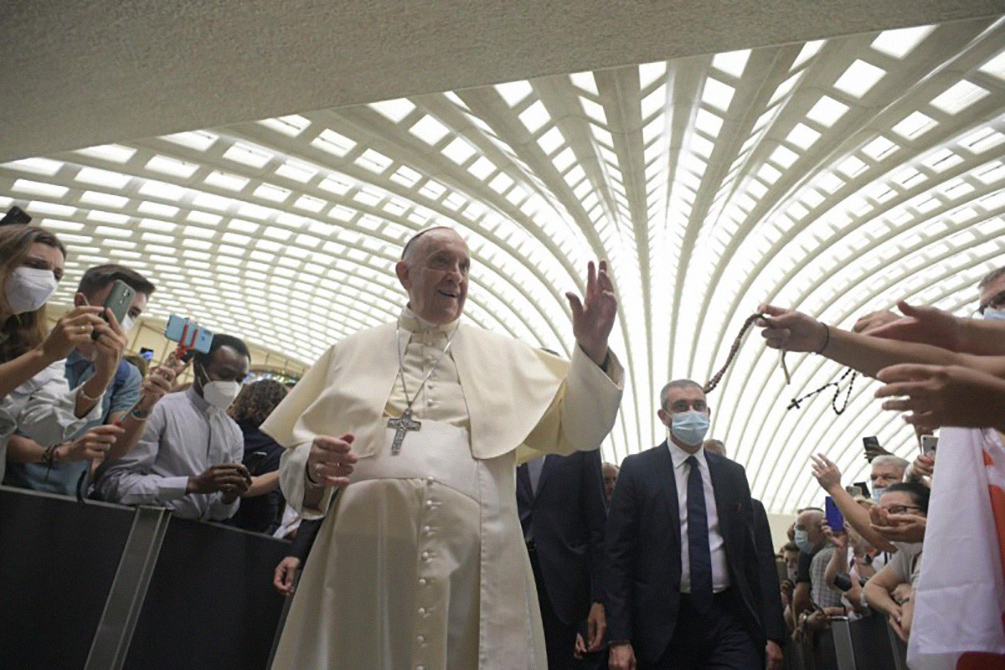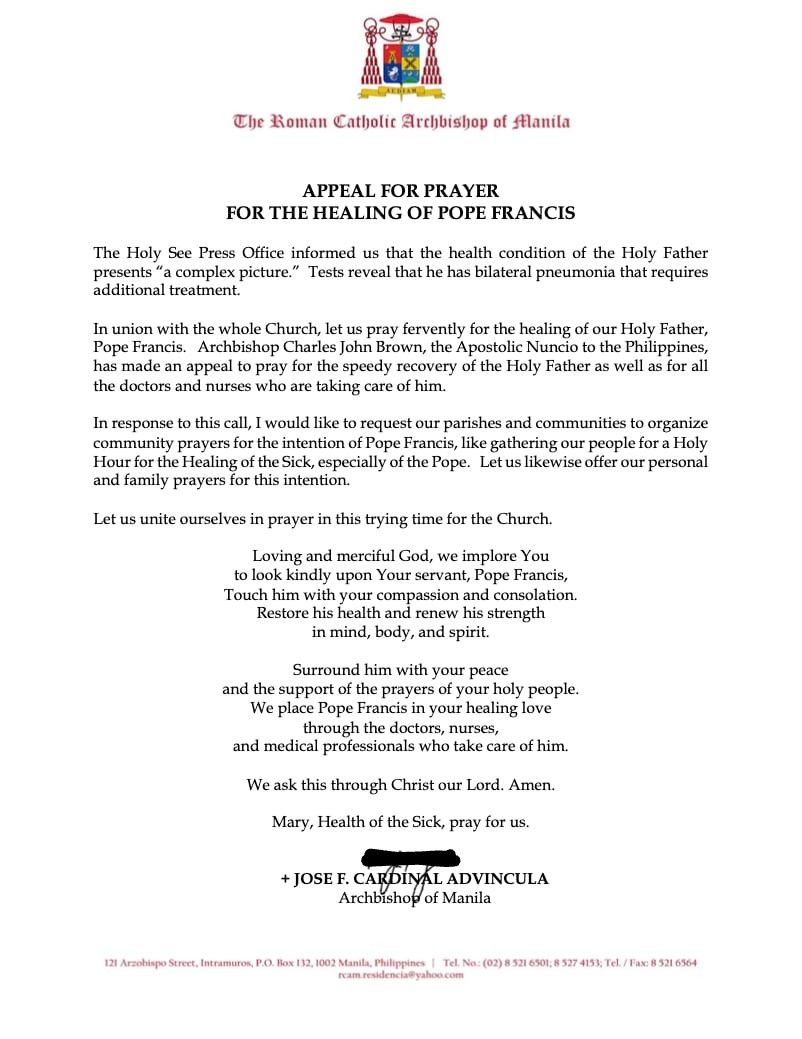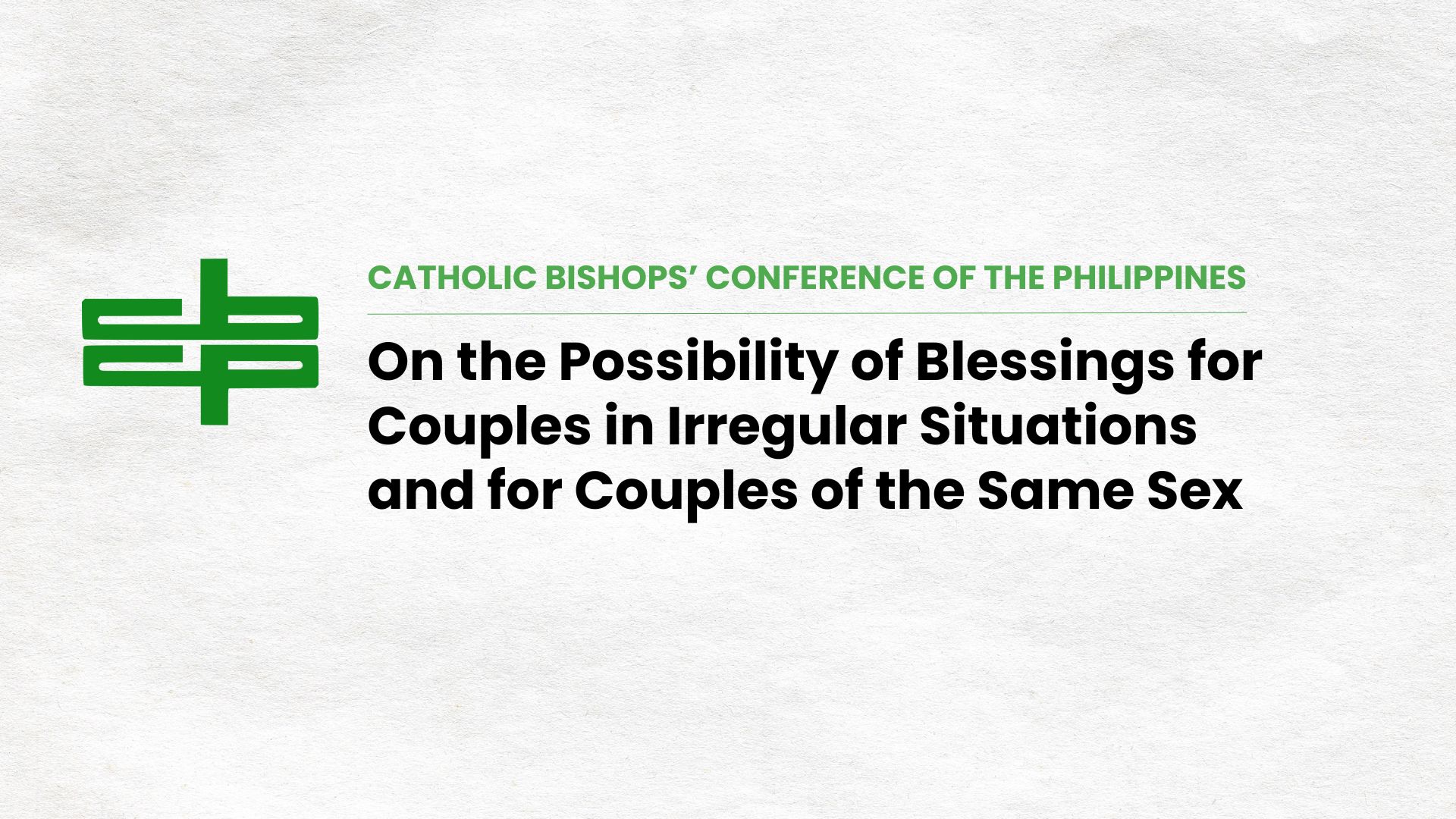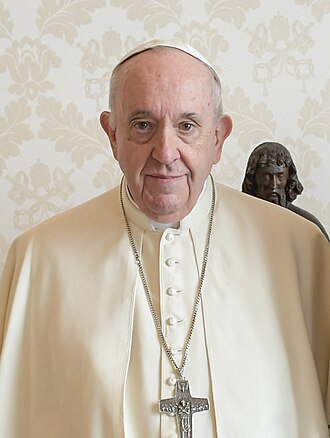By Catholic News Agency

August 25, 2021
VATICAN— Pope Francis said on Wednesday that hypocrisy within the Church is “particularly detestable.”
Speaking at the general audience in the Vatican’s Paul VI Hall on Aug. 25, the pope underlined that hypocritical behavior damaged Church unity.
“Hypocrisy in the Church is particularly detestable, and unfortunately there is hypocrisy in the Church, and there are many hypocritical Christians and ministers. We should never forget the Lord’s words: ‘Let what you say be simply Yes or No; anything more than this comes from evil,’” he said, quoting Matthew 5:37.
“Brothers and sisters, today, let us think about the hypocrisy that Paul condemns, and that Jesus condemns: hypocrisy. And let us not be afraid to be truthful, to speak the truth, to hear the truth, to conform ourselves to the truth, so we can love. A hypocrite does not know how to love.”
“To act otherwise means jeopardizing the unity of the Church, that unity for which the Lord Himself prayed.”
The pope’s live-streamed address, dedicated to the theme “The dangers of the Law,” was the sixth in his cycle of catechesis on St. Paul’s Epistle to the Galatians.
The pope reflected on Galatians 2:11-14, in which Paul recalls that he rebuked St. Peter for ceasing to eat with gentiles for fear of conflict with strict Jewish Christians, who stressed that Jews were prohibited from eating with non-Jews under Mosaic Law.
“First, Peter had been eating with the Christians of pagan origin without any difficulty; however, when some circumcised Christians from Jerusalem arrived in the city, he then no longer did so, because he did not want to incur their criticism,” the pope said.
“That’s the mistake: he was more focused on criticism, on making a good impression. And this is serious in Paul’s eyes, because other disciples imitated Peter, especially Barnabas, who with Paul had even evangelized the Galatians.”
Pope Francis said that, without intending to, Peter was creating “an unjust division” within the community.
Addressing pilgrims who were seated in the hall and wearing face coverings to prevent the spread of COVID-19, the pope said that Paul was, in essence, accusing Peter of hypocrisy.
He suggested that hypocrisy could be defined as “the fear of the truth.”
“In an environment where interpersonal relations are lived under the banner of formalism, the virus of hypocrisy easily spreads,” he said.
He noted that hypocrisy is frequently condemned in the Bible. He highlighted the example of Eleazar, an elderly Jewish man who refused to save his life by eating meat sacrificed to pagan deities.
Quoting from the Second Book of Maccabees, the pope said that Eleazar had refused because the younger generation would conclude that he had “gone over to an alien religion” and be led astray.
“What a beautiful episode to reflect on to distance ourselves from hypocrisy,” the pope remarked. “The Gospels, too, report several situations in which Jesus strongly reproaches those who appear just externally, but who internally are filled with falsity and iniquity.”
He encouraged pilgrims to read the 23rd chapter of St. Matthew’s Gospel and note how many times Jesus refers to “hypocrites.”
He added that hypocrites are people who “pretend, flatter, and deceive” because they lack the courage to face the truth.
“For this reason, they are not capable of truly loving — a hypocrite does not know how to love — they limit themselves to living out of egoism and do not have the strength to show their hearts transparently,” he said.
“There are many situations in which hypocrisy is at work. It is often hidden in the workplace where someone appears to be friends with their colleagues while, at the same time, stabbing them in the back due to competition. In politics, it is not unusual to find hypocrites who live one way in public and another way in private.”
After the address, a precis of the pope’s catechesis was read out in seven languages.
In his remarks to Polish-speaking pilgrims, the pope noted that Aug. 26 is the feast day of Our Lady of Częstochowa, who is venerated at the Jasna Góra Monastery in southern Poland.
He recalled that in 2016, during World Youth Day in Kraków, he visited the icon also known as the Black Madonna of Częstochowa.
“Five years ago, I was able to stand with young people before her black countenance and entrust to her the Church in Poland and the world,” he said.
“May her maternal protection be for you, your families, and all Poles a source of peace and every good. I bless you from my heart.”
He then sent his best wishes to athletes taking part in the Paralympic Games in Japan from Aug. 24 to Sept. 5.
“Yesterday, the Paralympics began in Tokyo. I send my greetings to the athletes and I thank them because they offer everyone a testimony of hope and courage. They, in fact, show how sporting efforts help to overcome seemingly insurmountable difficulties,” he said.
The pope also greeted Catholics from Montegallo, a commune in central Italy that was struck by an earthquake on Aug. 24, 2016.
“Dear brothers and sisters, your presence gives me the opportunity to turn my thoughts to the victims and to the communities of central Italy, including Accumoli and Amatrice, which have suffered the harsh consequences of that seismic event,” he said.
“With the concrete help of the institutions, it is necessary to give proof of ‘rebirth’ without letting distrust get in the way. I urge everyone to move forward with hope. Courage!”
The general audience ended with the recitation of the Our Father and the Apostolic Blessing.
After the audience, the pope stood up to greet individual bishops and priests, before being guided down the steps of the auditorium.










